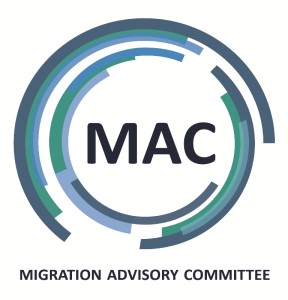Accompanying letter to the Minister for Safe and Legal Migration (accessible)
Published 27 April 2022
Migration Advisory Committee
2nd Floor Peel Building NE
2 Marsham Street
London
SW1P 4DF
27 April 2022
Rt Hon Kevin Foster MP
Minister for Safe and Legal Migration
2 Marsham Street
London
SW1P 4DF
Dear Kevin,
I am pleased to advise you that today the Migration Advisory Committee (MAC) has published its review of adult social care in the UK and the impact ending freedom of movement (FoM) has had on the sector, as per your commission on 6th July 2021. An advance copy of the report was shared on Monday as agreed before being laid in Parliament, as required for this commission, this morning.
Throughout the commission we have worked closely with a number of stakeholders, including, but not limited to, the Devolved Administrations, the Department of Health and Social Care (DHSC), and local authorities. We also appointed an expert advisory group with significant expertise of the social care sector, performed regular consultation with social care bodies across the UK and undertook a public Call for Evidence which received nearly 150 responses. It has been an incredibly busy and challenging period for the sector, so we are very thankful to all those who took the time to contribute information to us.
Our report considers the nature of the adult social care workforce and the role migrants play in it, details key elements of the social care labour market, and provides an overview of how the sector interacts with the immigration system. We highlight the fundamental challenges being faced by the care sector, revealing how many of these challenges, which include severe recruitment and retention difficulties and unattractive terms and conditions of employment, largely predate the ending of FoM, though the ending of FoM has exacerbated some of them. These difficulties largely stem from what has been a long-term and persistent underfunding of the social care sector by successive governments.
After listening to a wide range of stakeholders and experts in the sector, and having performed extensive data analysis and primary research, we have made a series of recommendations that we believe can provide crucial support for this vital sector in this very testing time. Your commission explicitly asked us to advise the Government on terms and conditions of employment in addition to immigration policy. We maintain that only a significant rise in pay can hope to address the problems of recruitment and retention in the sector. A key recommendation is therefore that the Government introduces a fully funded minimum rate of pay for care workers in England where care is being provided through public funds. We propose a starting point of £10.50 per hour which we note the Scottish Government has already implemented; this, however, will not be enough to address the issues and we urge the Government to go significantly further as quickly as possible.
On immigration policy, we broadly conclude that the Health and Care Worker Visa which has now been extended to include care workers is the appropriate mechanism to allow the sector to recruit migrant workers. Work should continue to ease the burden for employers in using the system and we make specific recommendations on some of the fees that are levied. We also carefully considered whether a lower salary threshold should apply to care workers, but on balance concluded that this would risk facilitating the already too widespread practice of paying care workers less than the value they provide, and less than the amount that is required for this labour market to function effectively.
With the commission on adult social care now having drawn to a close, the MAC are no longer working towards a government commission. We look to forward to the Government commissioning the MAC to review the Shortage Occupation List (SOL) in the near future.
On behalf of the Migration Advisory Committee
Yours sincerely,
Professor Brian Bell Chair, Migration Advisory Committee
cc:
Matthew Rycroft, Permanent Secretary Tricia Hayes, Second Permanent Secretary Emma Churchill, Director General, Migration and Borders Group Philippa Rouse, Director, Future Borders Immigration System Sonia Dower, Director, System Leadership and Strategy Della McVay, Deputy Director, Economic Migration Policy

